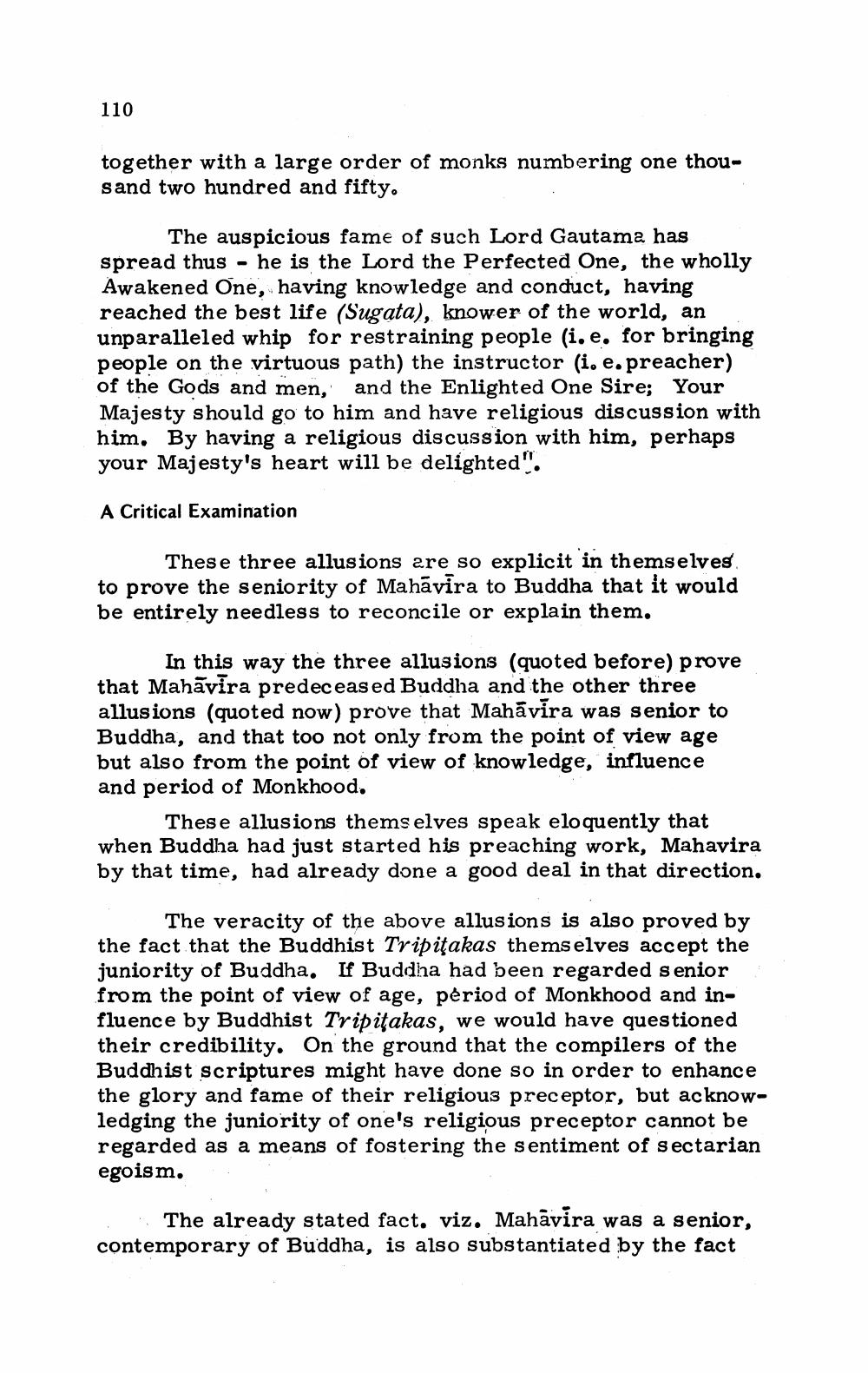________________
110
together with a large order of monks numbering one thousand two hundred and fifty.
The auspicious fame of such Lord Gautama has spread thus he is the Lord the Perfected One, the wholly Awakened One, having knowledge and conduct, having reached the best life (Sugata), knower of the world, an unparalleled whip for restraining people (i. e. for bringing people on the virtuous path) the instructor (i. e. preacher) of the Gods and men, and the Enlighted One Sire; Your Majesty should go to him and have religious discussion with him. By having a religious discussion with him, perhaps your Majesty's heart will be delighted".
A Critical Examination
-
These three allusions are so explicit in themselves. to prove the seniority of Mahavira to Buddha that it would be entirely needless to reconcile or explain them.
In this way the three allusions (quoted before) prove that Mahavira predeceased Buddha and the other three allusions (quoted now) prove that Mahavira was senior to Buddha, and that too not only from the point of view age but also from the point of view of knowledge, influence and period of Monkhood.
These allusions themselves speak eloquently that when Buddha had just started his preaching work, Mahavira by that time, had already done a good deal in that direction.
The veracity of the above allusions is also proved by the fact that the Buddhist Tripitakas themselves accept the juniority of Buddha. If Buddha had been regarded senior from the point of view of age, period of Monkhood and influence by Buddhist Tripitakas, we would have questioned their credibility. On the ground that the compilers of the Buddhist scriptures might have done so in order to enhance the glory and fame of their religious preceptor, but acknowledging the juniority of one's religious preceptor cannot be regarded as a means of fostering the sentiment of sectarian egoism.
The already stated fact. viz. Mahavira was a senior, contemporary of Buddha, is also substantiated by the fact




